|
|
||
|
Pro Tools
FILMFESTIVALS | 24/7 world wide coverageWelcome ! Enjoy the best of both worlds: Film & Festival News, exploring the best of the film festivals community. Launched in 1995, relentlessly connecting films to festivals, documenting and promoting festivals worldwide. Working on an upgrade soon. For collaboration, editorial contributions, or publicity, please send us an email here. User login |
EXCLUSIVE: TCM's "MOGULS & MOVIE STARS" Director Jon Wilkman Interviewby Quendrith Johnson, Los Angeles Correspondent Somewhere in Connecticut, Bill Haber, one of the founders of CAA, got a flash that Hollywood history should ride again. To that end, he contacted four-time Emmy winning documentary veteran Jon Wilkman and the rest is "A History of Hollywood." Set to air Nov. 1 through mid-December, "MOGULS & MOVIE STARS: A HISTORY OF HOLLYWOOD" will unspool every Monday night at 8 PM (ET) on Turner Classic Movies (TCM). Academy Award Nominee Christopher Plummer narrates this seven-part series. "Moguls" provides not only a bird's eye view into the founding of the film business, but it offers a chance for film buffs to test their skills. Divided into distinct eras, from 1889 to 1969, the series dares you to guess who'll be included and keep track of things missing. Luckily Wilkman, who researched, wrote and directed this piece of newly minted Hollywood memorabilia, knows his Kinoscope from his Biograph. Mrs. Thomas Alva Edison is depicted as screening the first flickering images for her "Ladies Club" based on her husband's "new invention." W. K. L. Dickinson, Edison's assistant, is shown in the very first pantomimes captured in light. There's even vintage footage of a Victorian clad woman named Alice Guy Blanche making a sync sound picture 22 years before Jolson in "The Jazz Singer." "The movies did not come from nowhere," as they say, and "Moguls" runs the gamut from the science and art dating back to Greece and perfected in France to the invention of B-movies. TCM's own Robert Osborne joins a list of film historians, directors, producers, surviving mogul offspring, and critics tapped for insider information. Sidney Lumet, Peter Bogdanovich, Gore Vidal, and Molly Haskell speak to the Hollywood of their experience while second-generation moguls Richard Zanuck and Samuel Goldwyn, Jr., Jack Warner's grandson Greg Orr and Daniel Mayer Selznick all offer touching personal perspectives on an industry that by now has almost become unrecognizable to most of its founders. Commentary from Osborne, Molly Haskell, biographer Jeanine Basinger, Peter Biskind, once mega-mogul Peter Guber, producer David Brown, George Stevens, Jr., and the very fine mind of legendary film maven Pauline Kael, flesh out the story of the movies as we know them today. What lingers from this series is not how much Hollywood has changed, but how much it remains a mercurial and transitioning business based on a few outlandish ideas... like pay-per-view and 3-D. "Peepshows & Pioneers" (1889-1907) kicks off the run of episodes with the boys from Back East, most by way of Staten Island: Louis B. Mayer, Carl Laemmle, William Fox, D. W. Griffith. "The Birth of Hollywood" (1907-1920) demarcates the formal start of "show business" with Jesse Lasky, Samuel Goldwyn, Cecil B. Demille, and Mack Sennett profiled up to the Roaring 20's. THE GREAT TRAIN ROBBERY's importance as a chock-a-block money-making eye-opener is made clear. The next installment, chronicling 1920 to 1928 is aptly called "The Dream Merchants." Seminal movie stars Mary Pickford, Charlie Chaplin, Greta Garbo and Clara Bow debut in "Dream Merchants," but the scope of what the industry would become is truly sketched out in "Brother Can You Spare a Dream?" Wilkman follows this new burgeoning revenue stream right through the Great Depression, and focuses a keylight on Oscar Micheaux, an African-American filmmaker who carved his own place as a counterpoint to "Birth of a Nation" stereotypes. Frank Capra, Katharine Hepburn, Shirley Temple, Mae West, The Marx Bros., Fred Astaire, and the accepted panoply of stars of the period are also explored in some rarely seen footage. "Warriors and Peacemakers" details the wartime and post-WWII world Hollywood helped shape from 1941-1950. Next, "Attack of the Small Screens" (1956-1960) weaves film era lows (Sen. McCarthy's "Blacklist") with television's increasing new highs. This series underscores how TV was much more than an upstart medium with distinctly different aspect ratios and demographics. Wilkman illustrates how the movie moguls had to bow down to the small screen from the very beginning. Lucille Ball and Desilu Productions are rightly shown in the context of a B-List movie star making A-List bank in broadcast. "Fade In, Fade Out" rounds out the series with a hard look at the shudders that went through the "glamorous" self-image Hollywood had created for itself when, from 1960 to 1969, race riots, political assassinations, and the Counterculture ripped a hole in the American Dream. Here's what Jon Wilkman shared recently in an exclusive interview about his (and CAA founder Bill Haber's) new series, "MOGULS & MOVIE STARS: A HISTORY OF HOLLYWOOD" for TCM:
Q: What was the first movie you saw, that blew you away?
A: That's a great question -- I would not say 'blew me away,' but opened my eyes to the fact that movies could be more than just fun. I would say there were two movies from the 1950's that did that for me. One was THE DEFIANT ONES, and the other was BAD DAY AT BLACK ROCK. About that same time I started seeing some of the foreign films, the Bergman films, things like that. I just (thought) this is more than fun and games, this is thought-provoking. Mainly as a kid, I went to the Jerry Lewis movies, and the Abbott & Costello's, and I went to the movies that were popular.
Q: Did you picture yourself being in the business? Or, when did you make that leap from 'these are amazing' to 'wow, I could do this'?
A: Again, I'm dating myself, but when I was a kid, watching television, I loved "Studio One" and "Playhouse 90." But more than anything else, I loved a series called "Omnibus" with Alistair Cooke. What was great about it was that it was a mixture of performance, informational documentaries, and that really started me thinking about documentaries and wanting to do that. Another series was on CBS, "A History of the 20th Century." Irony of ironies, I found myself after graduating from college working on that series. That's were I started and were I learned. It taught you to have the highest standards, because in those days, CBS was known as "The Tiffany Network." I worked as a researcher in the documentary unit -- it was kind of like the great era of the Studios that people talk about -- we were there to do interesting and informative and entertaining work. We were serious about what we were doing.
Q: What's your greatest Walter Cronkite story?
A: Oh, Walter was a wonderful man, he really was. He was as he appeared. I'll tell you one story, it's a long one. A number of years later, when I was President of the International Documentary Association, we decided to give Walter an award. And I hadn't seen him for a while, and there was a question as to whether he would accept this award and come out for it. When he got out (to LA), I said 'what are you going to talk about.' He said 'I'd just like to tell some anecdotes and stories.' He said 'I have this one funny story I tell all the time. I had this young assistant, and we were doing a story on Open-Heart Surgery. In the middle of this surgery, the young assistant faints.' He said it was 'funny as hell because we had to stop the operation.' I looked at him, and I said 'Walter. That was me!' He said 'THAT was you?'
Q: Going from The Tiffany Network to forming your own production company, what made you split from CBS?
A: It was a gutsy thing to do, frankly. CBS was very much driven by a traditional journalism, although Edward R. Murrow was long gone, it was a reporter's world. But in the 60's a new (trend) emerged, they called it 'cinema verite,' it was free-er. I was very attracted to that, and it was very unlikely CBS was going to adopt that style. That's why I left. I had my own series in New York, won a couple of Emmy's. I wanted to be less of a traditional journalist and more of a filmmaker/documentarian.
Q: In talking about cinema verite, are you referring to something like TWO-LANE BLACKTOP, where realism crept into the making of movies? That style of filmmaking? Something that shook up the Hollywood establishment?
A: TWO-LANE is not really cinema verite, but documentaries had a huge influence on American filmmakers, certainly Goddard. People don't give documentaries enough credit for its influence in the 60's, particularly the loose look of film, the hand-held, all that. My basic emphasis has pretty much always been documentaries. I loved the idea of confronting and grappling with the real world -- whereas you could make a feature film where you could design a character and narrative to capture a story. In documentary, you have to use the raw materials to capture the story. You use what you have in front of you. I found that much more challenging as a filmmaker. I didn't have the excuse that a feature filmmaker has 'well, that's just the story!' If the characters didn't seem real in a documentary, then I failed. I had no excuse. It's your job to capture reality.
Q: For MOGULS & MOVIE STARS, did you come to Turner with the titles, dates and episodes already in place?
A: No. The way the project started was that the executive producer Bill Haber was the co-founder of Creative Artists Agency (CAA), a man with deep roots in Hollywood. He was CAA's TV (Head) Agent. We had met about 25 years ago when he had seen something I did on CBS that he liked very much. Bill called up and said 'I've always wanted to do a history of the movies. Turner Classic Movies wants to do it, so let's do it.'
Q: Ovitz didn't come after him? Just kidding. The titles of these episodes are fantastic -- who did you approach for this, what libraries, because the footage is excellent.
A: We didn't want to do the typical thing, a collection of great scenes from the movies, we wanted to go deeper -- to show how Hollywood become "Hollywood." How did it function? Who were the players that moved things to make the movies that we all know, also, how does Hollywood relate to the periods in history? So we wanted to get the best story-tellers and biographers. That's why we have Sam Goldwyn, Jr., Richard Zanuck. That's why we have George Stevens, Jr. -- and the 100-year-old niece of Carl Laemmle, Carla Laemmle. She grew up on the Universal Lot in the 1920's. We also have James Zukor, the grandson of Adolph Zukor (founder of Paramount). They knew this story first-hand, shared family photos. That's something we really wanted to do, not only for general audiences to find this entertaining and informative, but we wanted filmmakers to look at this and say 'this is the way it is.'
Q: Did you take a look at the "That's Entertainment" movies, or any other sort of sweeping coverage of Hollywood to get a sense of the format for this?
A: Of course, I'd seen those films, and a series made about 30 years ago called "The History of Hollywood Pioneers" by Kevin Brownlow, which is a great series. Those are great,but they are collections of the great scenes.
Q: You mean more eye candy than history?
A: You want eye candy, those wonderful musical numbers that are fun to watch. And the reminiscences are fun to watch, but we wanted to be more analytical. We wanted viewers, not matter how much they know about movies, to, at the end of this, say 'not only did I learn some stuff I didn't know, but I saw some stuff I did know. Now I see it in a different light. A different angle; I see more to it, a historic perspective.' Even if they just get 'the real story' of CASABLANCA.
Q: Well, when you're calling up a sound-sync film from 1905 shot by a woman, you know your stuff!
A: There is so much glitter in the glowing world of Hollywood as we know it, but Hollywood is a very cruel place. A very tough place. A very competitive place. Wonderful and entertaining, but a business based on dollars and cents. Movie stars are a product too, and I wanted to make sure while we celebrate these musical magical moments, that we saw the underbelly of the business. It's struggle between commerce and creativity.
Q: The blood, sweat, and tears you mean? But you didn't want to be like Kenneth Anger with "Hollywood Babylon," right?
A: No, but that's very interesting, because Clara Bow is one of our characters. What we do throughout the series is choose the important figures, whether they are actors, directors or moguls, but we chose them for what they represented. Clara Bow was a perfect example of cruelty of Hollywood.
Q: She was the "IT" girl?
A: Yes. And during the Depression, she looked obscene with her excess and the press that had loved her turned on her with a vengeance. The way the history works out is that when Marilyn Monroe dies, someone finds Clara Bow and asks her about it. She says 'it's hard when you are hurt and bewildered.' She understood Marilyn Monroe, they were sisters in a way, in the business. These great artists, creatives like Mary Pickford and D. W. Griffith, suffer as the world changes. That's another part of the story we tell. This is a very ephemeral medium. We talk in the series about Cary Grant. At the end of his life, he says 'I wish I was Cary Grant.' It's like Marilyn Monroe, you're loved as a sex goddess, but it's the image they love, not the person.
Q: What did you find in archives, or while researching this series, that was most moving for you? I'm sure it must have opened doors that were unusual for you, even though you are an expert.
A: We found people who were under-represented. Oscar Micheaux, the African-American filmmaker (early 20's - 1940's), really represents the power of the movies. Because he got inspired to make movies by seeing BIRTH OF A NATION. Black viewers were not seeing themselves accurately depicted on screen. He said 'I think we can find an audience out there.' The movies should include everyone, depicted fairly. He started making movies, showing them in tiny towns.
Q: Tyler Perry has been shaking up the box office and everybody was shaking their heads for a while. It sounds familiar.
A: Tyler Perry is the (Hollywood) great god-son of Oscar Michaeux, and I bet he knows who Oscar Micheaux is! It is exactly that story -- 'I know my audience, it's not being fully served, and I am going to make those films.' In the 60's, as blacks became more assertive and visible, Sidney Poitier led the way.
Q: The irony there is that movies "begin" with Al Jolson in black face mocking his own origins --
A: Yeah. "The Jazz Singer" is really the story of a young Orthodox Jew who wants to sing jazz. That's what these moguls wanted to do, sing their own songs, do business their way.
Q: What did you learn through the years, each time period, you marked off in the series? Did you have an 'ah-ha' moment that stays with you?
A: I think it's the way the movies morphed to survive challenges: sound, the Great Depression, radio, TV. The moguls were able to change and grow, evolve and thrive. We end the series when the studios are broken up and sold off and there's a lot of uncertainty, like there is now. I think we really wanted people to see the parallels to now, with (the digital age). There are a lot of similarities. The business is changing again.
"MOGULS & MOVIE STARS: A HISTORY OF HOLLYWOOD" debuts Nov. 1 at 8 PM on TCM and runs through Dec.
# # #
13.10.2010 | Quendrith Johnson's blog Cat. : Adolph Zukor Bill Haber CAA Carl Laemmle Cecil B. DeMille Charlie Chaplin Clara Bow D. W. Griffith Frank Capra Fred Astaire Gore Vidal Greta Garbo Hollywood Jack Warner Jr. Katharine Hepburn Louis B. Mayer Mae West marilyn monroe Mary Pickford Peter Bogdanovich Richard Zanuck Samuel Goldwyn Shirley Temple Sidney Lumet The Marx Bros. William Fox Interviews
|
LinksThe Bulletin Board > The Bulletin Board Blog Following News Interview with EFM (Berlin) Director
Interview with IFTA Chairman (AFM)
Interview with Cannes Marche du Film Director
Filmfestivals.com dailies live coverage from > Live from India
Useful links for the indies: > Big files transfer
+ SUBSCRIBE to the weekly Newsletter Deals+ Special offers and discounts from filmfestivals.com Selected fun offers
> Bonus Casino
User imagesAbout Quendrith JohnsonThe EditorUser contributions |



















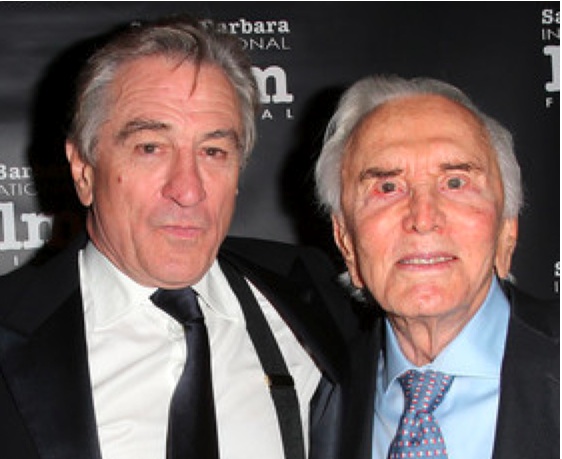
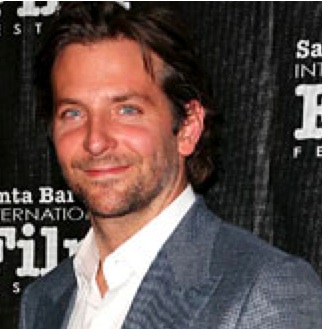
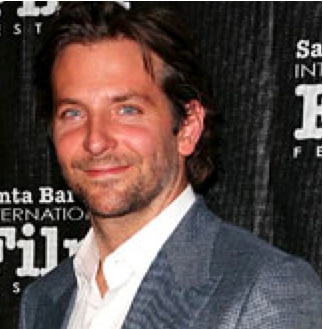

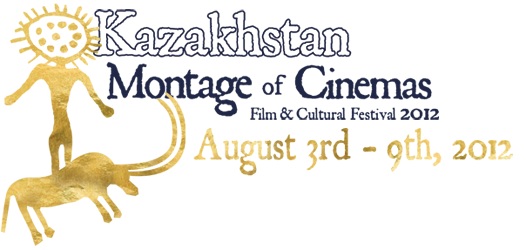
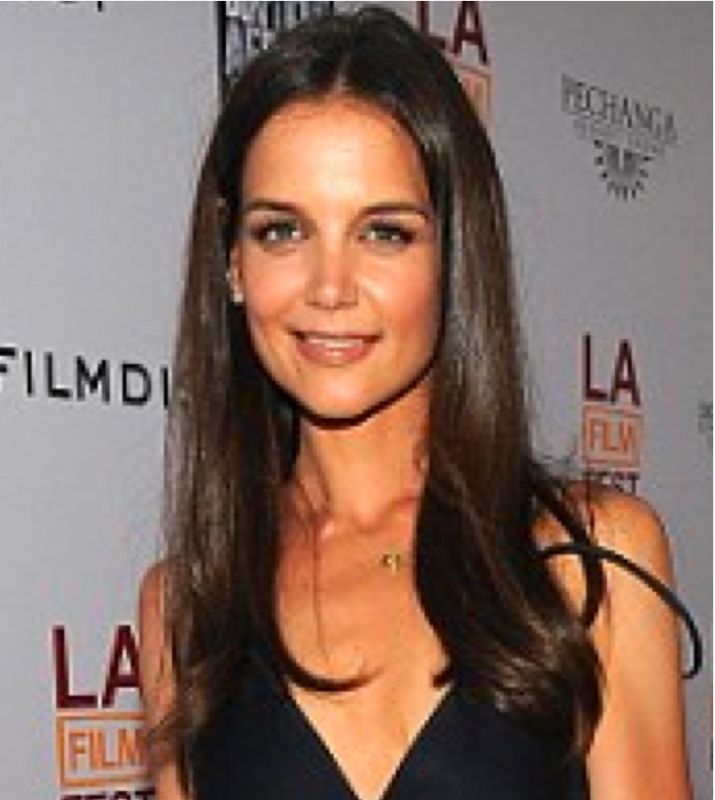
 Johnson Quendrith
Johnson Quendrith 


